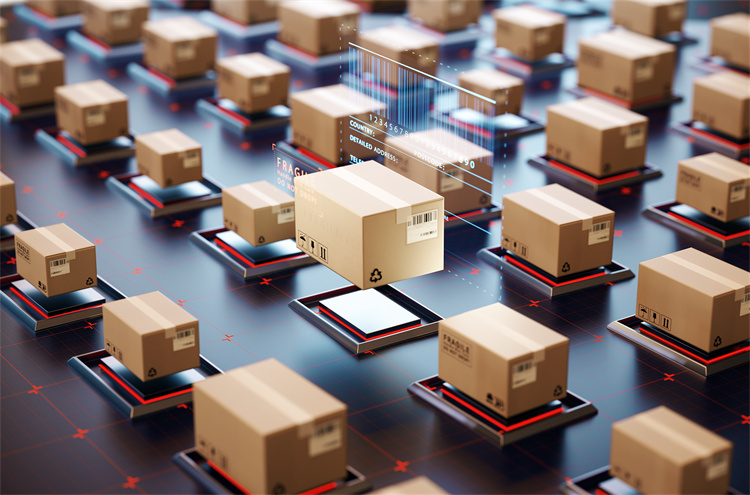Key Green Logistics Solutions for Environmental Sustainability

In today's world, you play a crucial role in promoting environmental sustainability through green logistics solutions. Logistics operations often face significant environmental challenges, such as high carbon emissions and resource consumption. By adopting eco-friendly practices, you can help reduce these impacts. Logistics not only moves goods but also contributes to achieving sustainability goals. Your efforts in implementing sustainable practices can lead to a healthier planet and a more efficient supply chain.
Key Green Logistics Solutions in Transportation

Transportation plays a vital role in logistics, and adopting green logistics solutions can significantly reduce environmental impact. You can explore various strategies to make transportation more sustainable.
Electric and Hybrid Vehicles
Electric and hybrid vehicles offer a promising solution for reducing emissions in logistics.
Benefits of Electric Vehicles
Electric vehicles (EVs) produce zero tailpipe emissions, which helps improve air quality. They also reduce noise pollution, making them ideal for urban areas. You can benefit from lower operating costs due to reduced fuel expenses and maintenance needs. EVs contribute to energy efficiency by using renewable energy sources.
Case Studies of Hybrid Vehicle Use
Many companies have successfully integrated hybrid vehicles into their fleets. For example, delivery services have reported significant reductions in fuel consumption and emissions. By using hybrid vehicles, you can achieve a balance between performance and sustainability. These case studies demonstrate the practical benefits of adopting green logistics solutions.
Alternative Fuels
Alternative fuels provide another avenue for reducing the carbon footprint of transportation.
Types of Alternative Fuels
You can choose from various alternative fuels, such as biodiesel, ethanol, and natural gas. Each type offers unique advantages in terms of availability and environmental impact. Biodiesel, for instance, is made from renewable resources and can reduce greenhouse gas emissions.
Impact on Emissions Reduction
Using alternative fuels can lead to substantial emissions reductions. You can decrease your reliance on fossil fuels and contribute to a cleaner environment. By adopting these fuels, you support the transition to a more sustainable logistics network.
Efficient Route Planning
Efficient route planning is essential for minimizing fuel consumption and emissions.
Technologies for Route Optimization
Advanced technologies, such as GPS and AI, enable precise route optimization. You can use these tools to identify the shortest and most efficient paths. This reduces travel time and fuel usage, enhancing the overall efficiency of your logistics operations.
Examples of Successful Implementations
Several companies have successfully implemented route optimization technologies. For instance, logistics firms have reported significant cost savings and emissions reductions. By adopting these green logistics solutions, you can improve your operational efficiency and environmental performance.
Eco-Friendly Packaging Solutions

Incorporating eco-friendly packaging solutions into your logistics operations can significantly reduce environmental impact. By choosing sustainable materials and systems, you contribute to a greener planet and enhance your brand's reputation.
Biodegradable Materials
Biodegradable materials offer a sustainable alternative to traditional packaging. They break down naturally, reducing waste and pollution.
Types of Biodegradable Packaging
You have several options when it comes to biodegradable packaging. Common types include:
Plant-based plastics: Made from renewable resources like corn starch, these plastics decompose more quickly than conventional plastics.
Paper and cardboard: These materials are easily recyclable and biodegradable, making them ideal for packaging.
Biodegradable films: Used for wrapping and protecting products, these films decompose without leaving harmful residues.
By selecting the right type of biodegradable packaging, you can align your logistics operations with green logistics solutions.
Environmental Benefits
Biodegradable packaging offers numerous environmental benefits. It reduces landfill waste and lowers carbon emissions during decomposition. By using these materials, you minimize your ecological footprint and support sustainable practices. This choice not only benefits the environment but also appeals to eco-conscious consumers.
Reusable Packaging Systems
Reusable packaging systems provide another effective green logistics solution. They reduce waste and promote resource efficiency.
Implementation Strategies
To implement reusable packaging systems, consider the following strategies:
Design durable packaging: Create packaging that withstands multiple uses without compromising quality.
Establish return systems: Encourage customers to return packaging for reuse, offering incentives if necessary.
Collaborate with partners: Work with suppliers and distributors to develop a shared system for reusable packaging.
These strategies help you integrate reusable packaging into your logistics operations, enhancing sustainability.
Case Studies
Several companies have successfully adopted reusable packaging systems. For example, a leading beverage company implemented a bottle return program, significantly reducing waste. Another company in the electronics sector introduced reusable shipping containers, cutting down on packaging costs and environmental impact. These case studies demonstrate the practical benefits of reusable packaging as part of green logistics solutions.
By embracing eco-friendly packaging solutions, you play a vital role in promoting sustainability. These practices not only benefit the environment but also enhance your brand's image and customer satisfaction.
JUSDA's Role in Green Logistics Solutions
JUSDA stands at the forefront of green logistics solutions, offering innovative strategies to enhance sustainability in supply chain operations. By focusing on sustainable warehouse and facility management, as well as waste reduction practices, you can significantly reduce your environmental impact.
Sustainable Warehouse and Facility Management
Efficient management of warehouses and facilities plays a crucial role in minimizing energy consumption and promoting sustainability.
Energy-Efficient Warehousing
You can achieve energy efficiency in warehousing by implementing several key strategies:
Lighting Optimization: Use LED lighting and motion sensors to reduce electricity usage. This approach not only cuts costs but also lowers carbon emissions.
Temperature Control: Implement smart HVAC systems to maintain optimal temperatures with minimal energy use. This ensures that your warehouse remains comfortable while conserving energy.
Insulation Improvements: Enhance insulation to prevent energy loss. Proper insulation keeps your facility energy-efficient year-round.
By adopting these practices, you contribute to a more sustainable logistics network.
Use of Renewable Energy Sources
Incorporating renewable energy sources into your logistics operations can further enhance sustainability:
Solar Panels: Install solar panels on warehouse rooftops to generate clean energy. This reduces reliance on fossil fuels and decreases your carbon footprint.
Wind Turbines: Consider wind turbines for additional renewable energy generation. They provide a reliable source of power and support your green logistics solutions.
Geothermal Systems: Utilize geothermal energy for heating and cooling. This sustainable option offers long-term energy savings.
These renewable energy sources help you create a more eco-friendly logistics environment.
Waste Reduction Practices
Effective waste reduction practices form a vital component of green logistics solutions. By focusing on recycling and reuse programs, as well as zero waste initiatives, you can minimize waste and promote sustainability.
Recycling and Reuse Programs
Implementing recycling and reuse programs can significantly reduce waste:
Material Sorting: Sort materials for recycling to ensure proper disposal. This reduces landfill waste and supports a circular economy.
Reusable Containers: Use reusable containers for shipping and storage. This practice minimizes packaging waste and enhances resource efficiency.
Partnerships with Recyclers: Collaborate with recycling companies to manage waste effectively. These partnerships ensure that materials are recycled responsibly.
By adopting these programs, you contribute to a cleaner environment.
Zero Waste Initiatives
Zero waste initiatives aim to eliminate waste entirely:
Waste Audits: Conduct waste audits to identify areas for improvement. This helps you develop targeted strategies for waste reduction.
Composting: Implement composting programs for organic waste. Composting reduces landfill waste and enriches soil health.
Employee Training: Educate employees on waste reduction practices. Training fosters a culture of sustainability within your organization.
These initiatives empower you to achieve zero waste goals and enhance your green logistics solutions.
By embracing JUSDA's role in green logistics solutions, you can lead the way in promoting environmental sustainability. These practices not only benefit the planet but also improve your operational efficiency and brand reputation.

JUSDA Solutions
To provide you with professional solutions and quotations.
In summary, you have explored various green logistics solutions that can transform your operations. Electric and hybrid vehicles, alternative fuels, and efficient route planning significantly reduce emissions. Eco-friendly packaging and waste reduction practices further enhance sustainability. These solutions not only benefit the environment but also improve operational efficiency. By adopting green logistics solutions, you contribute to a healthier planet and a more sustainable future. Take action today and integrate these practices into your logistics operations. Your efforts will lead to a positive impact on both the environment and your business.
See Also
Optimal Eco-Friendliness: JUSDA's Transport Expansion Revealed
The Transformation of Supply Chain Sustainability by JUSDA
Mastering Green Transport in Supply Chains: A Comprehensive Manual
Revealing Cost-Efficient Logistics: Expert Tips for Supply Chain Optimization
Exploring Efficient Logistics for Success in High-Tech Production
